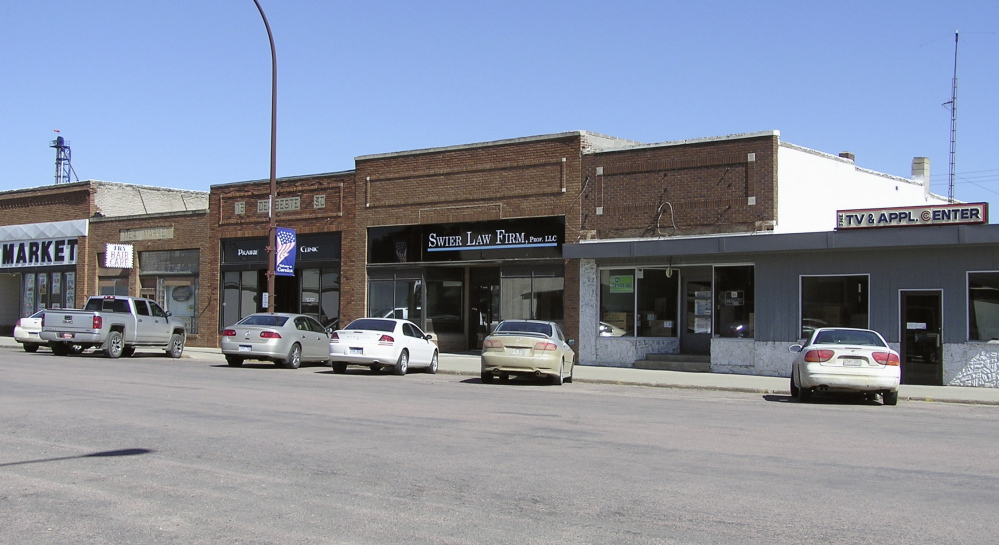CORSICA, S.D. — By landing a steady job in a hopping metropolis, Jake Fischer achieved the dream of many who finished law school during the Great Recession. Then, he left the big-city life and moved to a small South Dakota town, lured by a program that seeks to boost the number of rural attorneys.
Although federal grant money for decades has been available for doctors, nurses and dentists willing to relocate to sparsely populated areas, the South Dakota program is believed to be the first of its kind to similarly compensate lawyers.
Fischer is the first of up to 16 attorneys accepted into the program, which is funded by the state’s judicial system, the South Dakota Bar Association and the counties. It offers an annual subsidy of $12,000 – or 90 percent of the cost of a year at the University of South Dakota Law School – to live and practice in rural communities.
The 30-year-old left his job at a Minneapolis nonprofit this past spring to work at his new law office in Corsica, South Dakota, about 25 miles from his hometown of Parkston. He’s the only full-time attorney in the town of 600 and one of just two full-time lawyers in a county of about 3,000 people,
“Being in a small town, of course you have to do a little bit of everything, criminal law, land deals, business deals, estate planning, the whole range of stuff really,” Fischer said.
Four urban areas in South Dakota have 65 percent of the state’s lawyers and rural residents sometimes have to drive nearly 100 miles for legal advice. But South Dakota isn’t the only state struggling with attracting lawyers to rural areas.
In Nebraska, 12 of the state’s 93 counties have no practicing attorney. Only about 30 percent of Georgia’s attorneys can be found outside the Atlanta area. Even in New York, more than 60 percent of the state’s attorneys concentrate in New York City.
South Dakota Supreme Court Chief Justice David Gilbertson, a former small-town lawyer himself, said such a disparity threatens the legal system.
“You can have the courthouse doors wide open, you can have the judge sitting in the courthouse, but without lawyers to represent the clients, nothing is going to happen, or very little,” Gilbertson said. “They make the whole system work.”
Send questions/comments to the editors.



Success. Please wait for the page to reload. If the page does not reload within 5 seconds, please refresh the page.
Enter your email and password to access comments.
Hi, to comment on stories you must . This profile is in addition to your subscription and website login.
Already have a commenting profile? .
Invalid username/password.
Please check your email to confirm and complete your registration.
Only subscribers are eligible to post comments. Please subscribe or login first for digital access. Here’s why.
Use the form below to reset your password. When you've submitted your account email, we will send an email with a reset code.